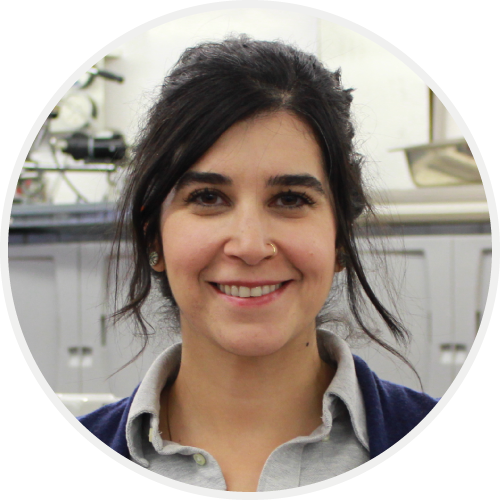
The Science of Alt Protein: Characterization of extruded plant-based meats using ultrasonics

Dr. Filiz Koksel
Assistant Professor of Food Processing, Food and Human Nutritional Sciences Department, Faculty of Agricultural and Food Sciences, University of Manitoba
Webinar description
Low-intensity ultrasound waves are used as a tool to non-destructively provide information on the mechanical properties of soft media, including soft foods such as bread dough and noodles. This technique has never been used to characterize extruded foods. In this seminar, Dr. Filiz Koksel of the University of Manitoba will discuss her GFI-funded research to obtain real-time ultrasonic information on extruded plant-based meats and link this information to the physical (i.e., textural) and nutritional quality (i.e., protein digestibility) of the end-product.
Meet the speaker

Dr. Filiz Koksel
ASSISTANT PROFESSOR OF FOOD PROCESSING, FOOD AND HUMAN NUTRITIONAL SCIENCES DEPARTMENT, FACULTY OF AGRICULTURAL AND FOOD SCIENCES, UNIVERSITY OF MANITOBA
Dr. Filiz Koksel is an Assistant Professor in the Department of Food and Human Nutritional Sciences at the University of Manitoba. Dr. Koksel is a food scientist with expertise in food processing and non-destructive assessments of food quality, and her research program aims to tackle issues related to an ever-increasing demand for sustainable, high-quality plant-based foods. Dr. Koksel’s creativity in exploring new approaches in these areas is particularly noteworthy as her program is at the interface between food processing and materials science. To bring Canadian crops from the field to our tables, Dr. Koksel’s program looks at several operations – such as milling, mixing, sheeting, baking, texturization, and extrusion – to transform these crops into foods with superb palatability and nutritional value. Since 2017, she has secured >$1.4M in research funding as PI or co-PI and >$2.3M as co-investigator to establish a thriving research program at the University of Manitoba. She has also mentored and contributed to training 30+ highly qualified personnel, including K-12, undergraduate, and graduate students, postdoctoral fellows, research associates, and visiting scholars.




